BLOG
Johnson Controls launches 1MW CDU
Johnson Controls has launched a new cooling distribution unit (CDU) for liquid-cooled data centers.
The company this week announced an expansion its data center thermal management offerings with the launch of its Silent-Aire CDU platform.
The Silent-Aire CDUs offer a wide range of scalable cooling capacities from 500kW to more than 10MW in flexible designs to suit the needs of the data center deployment.
Each unit can provide 1.05MW of cooling capacity (using 25 percent propylene glycol) with a 9.4°F (5.2°C) approach temperature or 1.4MW using a water design with a 6.3°F (3.5°C) approach temperature.
Johnson said the CDUs can be positioned either within the rack row, adjacent to heat-generating equipment, or in the whitespace perimeter.
Johnson Controls manufactures the Silent-Aire CDUs at facilities across North America, Europe, and Asia Pacific.
Johnson Controls provides and deploys data center solutions across more than 150 countries. Founded in 1994 in Canada, Silent-Aire launched its first data center air cooling unit in 2004. It was acquired by Johnson in 2021.
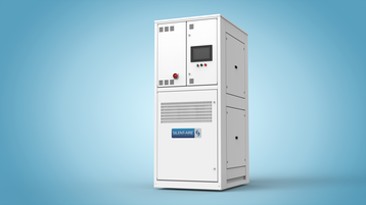
Boyd launches rack emulator to aid liquid cooling deployments
Cooling technology vendor Boyd has launched a new thermal testing tool to help data centers deploy liquid cooling systems more effectively.
The company’s new Rack Emulator simulates the pressure drop and heat dissipation of a rack, using automation to test coolant distribution units (CDUs) and facility cooling systems to validate thermal performance before connecting to data center IT equipment.
According to Boyd, this will help ensure “efficient and safe operation through start up without damage.” The emulator is apparently programmable and flexible to simulate any rack, simulating operating characteristics. It works by connecting to the liquid cooling system, enabling users to input capacity and pressure drop protocols.
The emulator can also test electrical inputs to the rack before the server is put in place.
Boyd says the device has been packaged in a rack size so that it fits within a standard data center row. It’s available to order now, and units will start shipping later this month.
Boyd provides material and thermal solutions, as well as cooling tech for batteries, power inverters, and other electronics. It caters to single-and two-phase liquid cooling, immersion cooling, and air cooling, including CDUs, cold plates, and cooling loops.
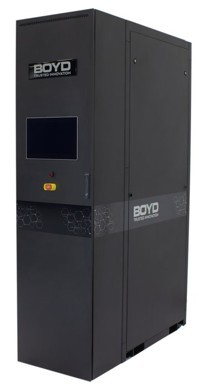
Accelsius deploys thermal simulation rack in Cleveland data center
Accelsius, a two-phase liquid cooling company, is deploying one of its thermal rack simulation systems at a data center in Ohio.
Texas-based Accelsius was originally founded in 2022 by Innventure to commercialize technology developed by Nokia's Bell Labs that had not been productized.
Direct-to-chip systems usually rely on water, which has a high heat capacity, but Accelsius is using a dielectric coolant, allowing it to boil in the circulating system to remove more heat.
The NeuCool TSR is a thermal bank that allows companies to test and validate Accelsius' cooling solutions without the need for GPUs. Available in 30kW and 50kW configurations, it can be customized in-row up to 250kW.
The company has deployed technology at several data center labs, and recently posted on LinkedIn that its NeuCool Thermal Simulation Rack is headed to London for deployment at Telehouse's new Liquid Cooling Lab. It has also deployed a cooling system to an Equinix lab in Virginia.
Park Place Technologies provides third-party data center hardware maintenance, software technical support, infrastructure managed services, and other services. It opened a new HQ in Cleveland in July.
The company said the $90 million campus, at 747 Alpha Drive, totals 330,000 sq ft (30,658 sqm) in the main buildings. The site features a quality assurance and R&D data center hosting more than 170 operating servers, as well as a liquid cooling lab with direct-to-chip and immersion cooling technologies.
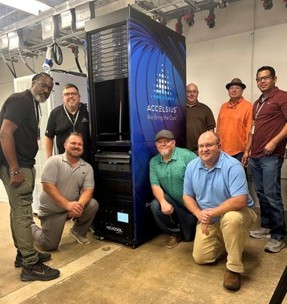
Firmus gets go ahead for AI data center project in Launceston, Tasmania
Firmus' data center project in Launceston, Tasmania, has been endorsed by the local city council.
The data center campus, described as an "AI Factory," will be located in St Leonards and span 5 hectares of land.
Approval of the project was first reported by The Mercury.
The campus - dubbed Project Southgate - will feature two server halls, an office building, and associated infrastructure. It will be powered by renewable energy.
The project is being worked on with the Tasmanian Government, and will deliver a combined 90MW of AI infrastructure by 2026 in the first stage — with 44MW delivered under Stage 1a, and Stage 1b doubling capacity to 90MW. A further 300MW second stage is planned to follow, subject to final approvals.
Stage 1a is expected to see AU$2.1 billion (US$1.37bn) in investment.
Mayor Matthew Garwood said: “This project really puts Launnie on the map as a hub for digital innovation.
Firmus currently operates an R&D facility in Tasmania. Founded in 2019 by Oliver Curtis, Tim Rosenfield, and Jonathan Levee, the Tasmania site was originally its flagship data center. The company initially was focused on high-performance compute and specialized in immersion cooling, but today describes itself as a pure AI factory builder.
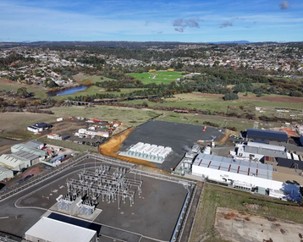
Malaysia’s Crescendo Corp sells land in Johor for data center
Malaysia real estate firm Crescendo Corporation has sold more land in Johor for a planned data center.
In a Bursa stock exchange announcement this week, Crescendo said its wholly-owned subsidiary, Crescendo Development Sdn. Bhd. last week entered into a conditional Sale and Purchase Agreement with MSFusion Sdn. Bhd (MSB) to sell just over 52 acres of land for RM 263.2m ($62.2m).
The land is located in the Bandar Cemerlang Industrial Park, in Kota Tinggi. The deal is set to be completed by the third quarter of 2026.
Closing of the deal is dependent on MSB being granted with power allocation of 300MW from local utility TNB and getting planning approval for the planned data center.
MSB is a subsidiary of Megaspeed International Pte. Ltd., a company incorporated in Singapore. Though few details are available, Megaspeed describes itself as a cloud company, offering access to Nvidia GPU hardware. The company lists plans for three liquid-cooled data centers across Asia.
Located in Malaysia’s south, Johor is just across the border from Singapore.
Though Singapore is starting to ease restrictions around its ongoing moratorium on new data center developments, Johor has grown a sizeable data center market of its own as developments overspill from the city-state.
Other developers and operators in Johor include PDG, AirTrunk, Equinix, Keppel, ChinData's Bridge DC, and Yondr.
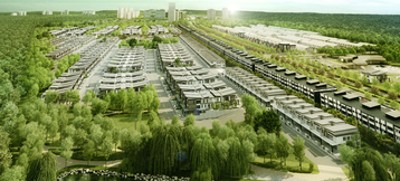
Exascale partition of Jupiter supercomputer inaugurated at Jülich Supercomputing Centre
The exascale partition of the Jupiter supercomputer has today (September 5) been inaugurated at the Jülich Supercomputing Centre (JSC) in North Rhine-Westphalia, Germany.
Once the partition goes live, the Eviden-designed BullSequana XH3000 system will become Europe’s first exascale system. Currently, it offers a total of 793.4 petaflops and is the fourth most powerful supercomputer on the Top500 list.
Procured by the EuroHPC JU initiative, Jupiter is housed in a modular data center at JSC, comprising 50 pre-built, interchangeable modules, which the center says is the equivalent of around half a soccer pitch in size. Atos-owned Eviden is also responsible for building the modular data center.
The system itself contains 24,000 Nvidia GH200 Grace Hopper Superchips, cooled by Eviden’s direct liquid cooling technology and interconnected with Nvidia Quantum-2 InfiniBand networking. According to the company, Jupiter has demonstrated “unrivaled energy efficiency,” with the system’s first module – dubbed JEDI – ranking first on the Green500 list of most efficient supercomputers.
Use cases for Jupiter will include weather forecasting and climate simulation, AI model training, and neural network mapping.

250MW off-grid data center campus planned for Gibraltar
A new large-scale data center campus is coming to Gibraltar.
Pelagos Data Centres this week announced plans to develop a 250MW project on the British territory.
The first stage of the project is scheduled to become operational in late 2027, with subsequent phases to follow at approximately 18-month intervals.
With an investment of £1.8 billion ($2.24bn), the project is the largest in the territory by value in its history. The development is backed by the Government of Gibraltar and funded entirely by private investment.
The liquid- and air-cooled site will be built to Tier III standards and operate with a Power Usage Effectiveness (PUE) of approximately 1.2. The site will feature a public leisure facility. The company said it is in talks about initiatives to recover or repurpose heat from the data centre for use by community projects in Gibraltar.
Gibraltar is a British Overseas Territory and city located at the southern tip of the Iberian Peninsula, bordered by Spain. Gibtelecom operates two data centers in the area via its Rockolo unit, while gambling infrastructure firm Continent 8 also operates a facility within the Rock of Gibraltar. Gibfibre also operates a facility in Gibraltar.
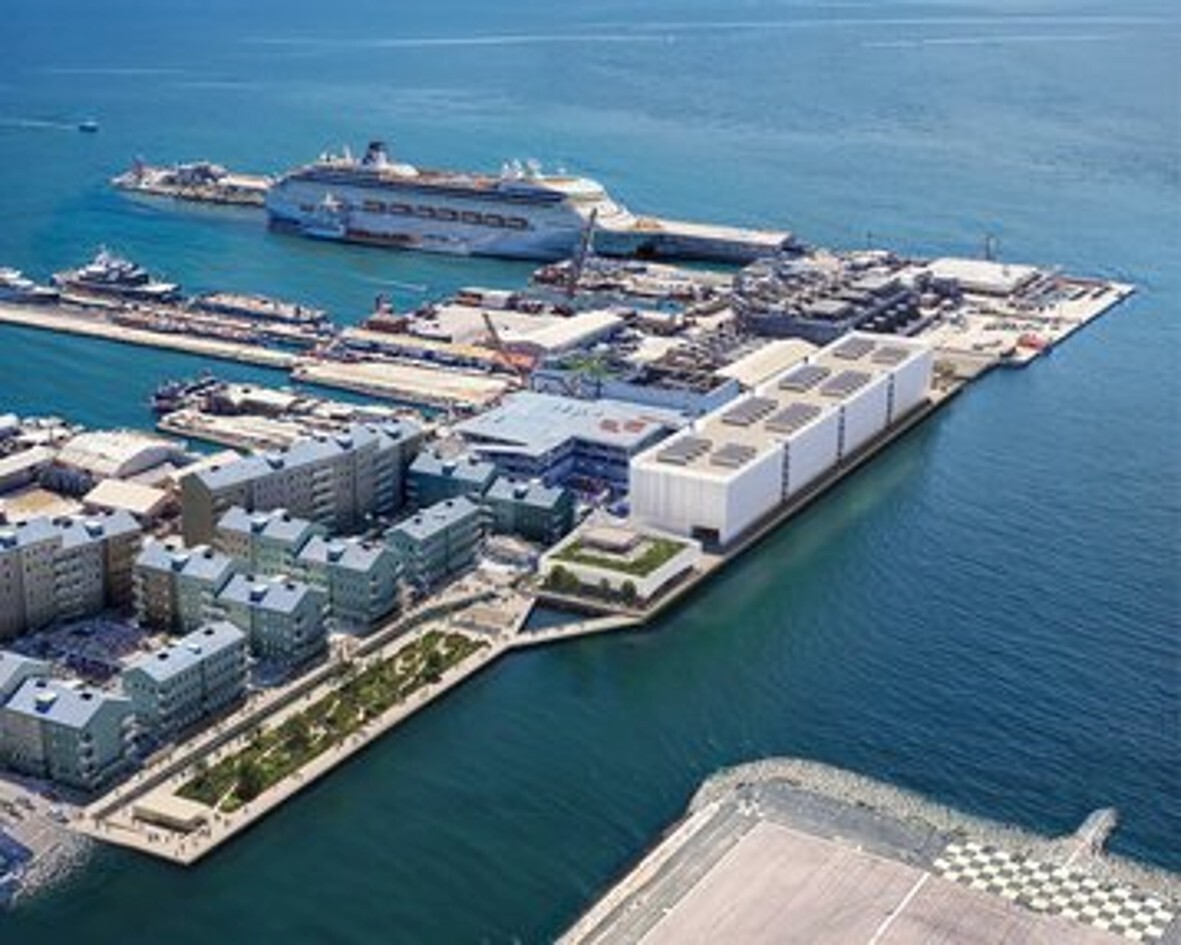
RadiusDC breaks ground on 12MW Nashville data center, Tennessee
US data center firm RadiusDC has broken ground on a new colocation facility in Nashville, Tennessee.The groundbreaking ceremony, held September 4, was attended by executives from RadiusDC, Blue Owl Capital, DPR Construction, as well as other design and community partners.
Nashville I, located on approximately 12 acres of land in the Trinity Hills area of Nashville, will deliver 12MW of critical power across a 102,500 square-foot (9,500 sqm), purpose-built facility.
When complete, RadiusDC said it will be the largest and newest colocation facility in Nashville proper. The company said it will feature enhanced cooling to support higher-density deployments and a closed-loop cooling system.
Previous reports suggest the company acquired a 12-acre site at 2902 and 2906 Brick Church Pike in Nashville for just over $5 million.
IPI Partners first launched RadiusDC in 2022 as an Edge firm, focusing on metro markets. IPI was acquired by Blue Owl last year.
RadiusDC’s existing footprint includes data centers in Denver, Colorado, and Miami, Florida. The company acquired its Miami facility in August last year. It announced plans to expand its 1500 Champa facility in Denver earlier this year.
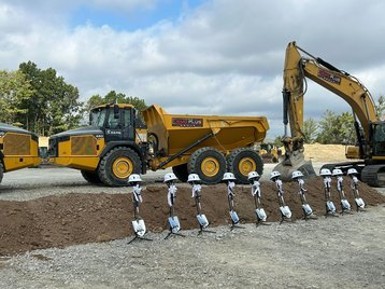
OpenAI to start mass-producing its custom AI chip in 2026
OpenAI is planning to start mass-producing its own custom AI chip next year.
The chips, which have been designed in partnership with Broadcom, will be used internally by OpenAI, rather than being made available to external customers, the FT reported.
The report came after Broadcom’s CEO, Hock Tan, told analysts on Thursday, September 4, that the company had secured a fourth customer for its AI chip business that had committed to $10 billion in orders. Tan did not name the customer, but the FT reported that people with knowledge of the situation confirmed it was OpenAI.
It has long been rumored that OpenAI has been working with Broadcom to develop its own custom AI training and inference semiconductor, with the company expanding its semiconductor team in recent years to support the effort.
In addition to working with OpenAI on its AI chip, Broadcom was also heavily involved in the development of Google's TPU AI chip.
Currently, OpenAI is one of the largest users of Nvidia GPUs for both training and inference workloads, but has opted to make its own custom chips in order to reduce its reliance on Nvidia hardware.
However, the company has previously sought to diversify its compute resources by deploying Google TPUs and AMD GPUs, and said it would provide Microsoft with feedback on its own custom AI chip project, dubbed Maia.
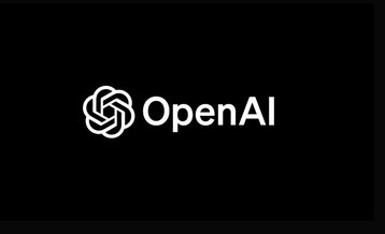
OpenAI Plans 1GW India Data Centre in Stargate AI Push
OpenAI is reportedly planning to establish a massive data centre in India with at least 1 GW capacity, marking the company’s most significant Asian expansion under its US$500bn Stargate infrastructure project.
The India facility represents a significant international component of Stargate, the US$500bn joint venture between OpenAI, SoftBank, Oracle and investment firm MGX announced at the White House in January. SoftBank CEO Masayoshi Son serves as chairman of the venture, with OpenAI holding operational responsibility.
The Stargate project plans to invest US$500bn over four years to build AI infrastructure, beginning with an immediate US$100bn deployment. Oracle and OpenAI signed an agreement in July to develop 4.5 GW of additional capacity in the United States, bringing total US commitments to over 5 GW.
“Each building is a half a million square feet. There are 10 buildings currently being built, but that will expand to 20 and other locations beyond the Abilene location,” Oracle co-founder, CTO and Chairman Larry Ellison said during the White House announcement, describing the Texas facility already under construction.
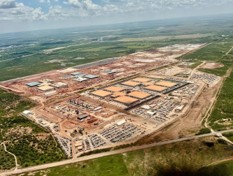
Leave A Reply
LOGO
This stunning beach house property is a true oasis, nestled in a serene coastal community with direct access to the beach.
Opening Hours
Monday - Friday : 9AM to 5PM
Sunday: Closed
Closed during holidays
Contact
+18888888888
hezuo@eyingbao.com123 West Street, Melbourne Victoria 3000 Australia



